Nicolae Cismaru is a man who has something to talk about. He first stepped on the deck of a ship when he was extremely young and even now, decades later, we cannot say that he has left the rudder in his hand.
At least he will continue to ride the waves aboard his small sailboat just like he rides his beautiful classic motorcycle, the object of his lifelong dreams.
People of the Sea – Nicolae Cismaru
She looks back with love, with nostalgia, but also with a squeeze of heart when she wonders, weighing it up, if it was worth it. If the fair was worth it: a hard life at sea for a better life on land.
We met and became friends working under yachts in Romania, he coming with over 15 years of experience working on incomparably larger yachts abroad.
How did the idea of “People of the Sea” come about?
I was glad when he agreed to tell us about places, people, emotions and events, some banal, others terrifying, to break and show us fragments of a life dedicated to the sea
How did you start sailing? Was there anything planned?
“There was nothing planned in this sense. My thought was to go to electronics, I liked to work in this area, I made radios and others…
My mother, God forgive her, wanted more for me, she didn’t realize that my passion could be more important than my profession and therefore she enrolled me in the Navrom Industrial High School in Constanta. I finished in the class of 1979. She was the first class of high school.
There were two specializations: mechanics and bridge. I entered the deck and I entered very well, there were 20 pages with the names of those who entered. I started reading from the queue to the beginning and when I got to the last list, which is actually the first one, the one with the first entrants, I didn’t even read anymore, I thought I had failed and went home. In fact, I was 29th on the first list…”

Were you born in Constanta?
“No, I was born in Ceptura, Prahova County and I came to Constanta at the age of four in 1964-1965. My parents moved here with their job, my father worked as a carpenter on construction sites.
After I finished high school and passed the ferry, I was the first Romanian sailor to go on a voyage without having the army ready. I was assigned to the 4th Section of Galati.
I studied very well in high school, but after high school I couldn’t go to college because I had to work to support my family because I was married and I already had a child, a girl.
The first trip I made was on a 55000 ton tank called Argeș. We transport gasoline and diesel from Romania to Italy, sometimes to France. It was during the first voyage that one of the most remarkable events of my career took place – the ship caught fire.”

How did this happen?
“We had arrived in Augusta Syracuse, in Italy. I was at the quay, during the unloading operations. I had to walk along the ship and take the ulage measurements to determine the amount of cargo left in the tanks. So you can figure out what measurement methods were then: I took the tape measure and scribbled it with chalk and then released it down into the gas tank or what cargo I was carrying and saw how high it sank. I was then carrying 110 octane naphtha. I had to be careful to keep my face away because when I opened the lids vapor came out and one of the colleagues even fainted because of it.
Ovidiu Niculeț, naval architect for small ships and recreational boats
While I was doing this I felt like an earthquake. When I looked at the stern, I saw the lifeboats on the port side burning. There were large flames, after that I found out that there had been an explosion at the engine room, the cauldron had exploded. I had a shock.
It was like a nightmare, practically all the lids of the ship were open, all those gasoline vapors came out and the stern was burning. Immediately the alarms went off and the Italians managed to extinguish the fire in three minutes using the installations they had on the cranes, on the overhead cranes. They foamed and managed to extinguish them.
Do you realize that this was during my first trip? It was such a scare that I wanted to give up sailing.”
What function did you go on your first trip? Helmsman, right?
“Yes, the first voyage was as a trainee helmsman, but they often let me keep the ship’s way alone. It was exciting as a beginner to know that you had such a large ship in your hands.
In fact, I really liked the sailing part, the sea walking. I liked it then, but also for the rest of my life, even in the last part, when I went on ferries to the Greeks and caught a lot of big storms in the Adriatic Sea. I have encountered a lot of special and difficult situations.
For example, once we went through a storm so big that a ship sank next to us, asked for our help and we couldn’t do anything.”
How did this happen?
“I was working at a Greek ferry company, Epirotiki. The owner was called Potamianos, he was very good, we got along very well. So well that once it kept me on the road for a year and a half, it didn’t let me go home.
“Changing lives for the better is my successful idea” Carmen Preda – founder of Capsea Yachting
I was impressed by many things while I worked on them, but one seemed to be more: when the owner was with us on board and we were passing by a particular island, I think Myconos or Delos – on that island he had his parents buried – with all the tourists, trucks, cars and whatever else we had on board, he would go around a little, He came close to the shore from where the cemetery could be seen well on the hill, stopped the ship there and pulled the siren for a long time. He greeted his parents who had left.”
How was that storm?
“It’s a story from about 15 years ago, I was racing between Bari and Durres in Albania. It was a time of the year when many Albanians came home to work in Italy.
A fairly big storm was announced, the port of Bari was closed and we were told that if we came, they would not allow us to enter the port. But the captain said that we had to leave anyway because 2000 passengers were waiting for us in Bari and we had to embark on the way back.
From Durres we loaded only two trucks with olive oil with the two drivers and two passengers. We tied the trucks well, they were tied with 10-12 chains. There I also destroyed my column because when the ship was full and we put six trucks next to each other, so that we could tie the middle ones together, we could only chain under the others. You can see that I was crawling under them with two heavy chains dragging behind me.
I left in the evening, the storm started around 11 at night, about the time I got into the cart. I was a helmsman, when I got on the command, the commander, the second mate and another officer were there. It was pitch black. If you didn’t know where the rudder was, you wouldn’t have been able to find it.”
The commander was looking out the window, leaning well, with his legs apart to keep his balance.
I took the helm. It was a very strange feeling, the waves were so big that when the wave came it would take my boat and take it 25-30 degrees from the course . If we didn’t get it right quickly, the second or third wave could have toppled us. From time to time the commander would tap me on the shoulder and ask me if I was ok. I answered yes, but I was also woe to my head, I was no longer young, I had a lot of experience already, but anyway you felt how fear penetrated you and just seeing the others being amazed. At one point I remember that I crossed myself.
Apart from those in command, the entire crew was in the dining room. They were sitting with their life jackets on, as if waiting for the order to abandon the ship because they all thought it would not resist and would sink.
Because of the roll and the strong pitch, the chains of the trucks were broken. Every time the ship tilted, the trucks would both go and hit the curbs. The garage being huge and they were walking from one curb to another, they broke and all the olive oil was scattered in the garage. Some acetylene tubes were also broken, which were also moving around like billiard balls in that big garage.”
And didn’t they drill holes in the ship’s board?
“Yes, they broke the curb but our luck was that we had put them in the upper garage, not in the lower one, below the waterline, so we didn’t have any water holes.
We arrived in Bari in the morning but it was still dark. They didn’t welcome us in the port.
Because of the very strong wind, I could see on land how the electric wires touched each other and made a big flame like lightning.
Then there was the situation with the ship that sank near us and we couldn’t help it.
Not being able to enter the port, the captain decided to anchor in a place where he thought it was more sheltered, but it was a big mistake.
He left the anchor thinking that he would put us on the wave and the movement would calm down. But the waves were so big that the ship began to spin sometimes in one board and then in the other more and more until at some point it reached the cross on the wave and began to roll so strongly that we thought it was going to flip over our heads. After a while, the anchor chain broke and that way we were able to leave.
When the day finally came to light, the feeling was completely different, it is much better when you see what is happening around you. Around 9:30 – 10:00 they welcomed us in the port because the wind had calmed down.
When we arrived, out of the entire crew of the ship, which was about 40 people, including sailors, maids, cooks, stewards, out of 40, only 10 remained. The rest disembarked.
People of the Sea: Ulf Røgeberg – a life between the helm of the yacht and the design board
They packed their bags and went home to Bari, they said that in their lives they would never get on the boat anymore. The truth is that it was a nightmare for everyone, including me. It was the mistake of the commander who decided to leave despite the weather forecast and could have killed us all.”
Let’s take a little with the story from the beginning, in 79 you finished high school, you went on that internship trip with the ship Argeș, when the fire happened. Then?
“Yes, then after the first trip I thought about quitting sailing. There was also the problem with that fire, plus I had a wife and child at home, I thought I could go and work with my father on the construction site.
My commander at the time told me that I should leave my family for later and make my career first. But for me it was late because I already had a wife and a child.
Then I had the opportunity to enter a flight school because the Danube-Black Sea Canal was going to open and pilots were going to be needed. But my wife opposed it because I was going to be away from home for a long time and that’s when I gave up. I missed a very important train for my career.
For a while I worked on land but then I went back to sea because it was better earned and you could bring one or the other. But money was still scarce, the daily allowance was 18-20 cents a day. From that money, when I arrived in France, the first time I managed to buy my wife only a blouse.
I was young at that time and I didn’t know how to make jokes and different small businesses like my colleagues did, with coffee and others, I didn’t even have the money to run, to invest.”

After you took that break, did you return to the sea on the tanks?
“No, I worked on the 12500 mineral mines, on Argeș, Uricani, Călan, Petroșani.”
What trips did they make?
“I did quite a long time, a few good years, alimbi, that’s what they were called. That is, the large ships came with iron ore that had to reach the sheet metal rolling mill in Galati and because they could not pass the bar from Sulina, they came to the port in Constanta and transferred from that large ship to two or three smaller ones.
Then again I stopped sailing for a while because I had some health problems with my wife and children and then came the revolution.
After the revolution I went by sea only abroad, I worked only for foreign companies.”
Still a helmsman?
“No, at one time I sailed as a crew chief, I had taken the exam at one point, but I liked it more as a helmsman.
For me at foreign companies it was good from a financial point of view, I supported my family well.”

How long did these trips last?
“The biggest trip I took was 16 months. When I came to Otopeni, my youngest daughter had come with her wife to the airport to wait for me and I didn’t recognize them. Do you realize? 16 months had passed…
But it was beautiful, the most beautiful period of my life as a sailor was while I was in Greece.
I liked the people very much and the language as well. I learned it from songs, I was self-taught and I still speak it today. That was the part that compensated for the lack of family: the fact that I had something to see and made time go by easier.”
What situations can you tell us about from that period?
“One night when we were at the ferries, we had another campaign called Superfast that had fast boats, they were going at twice our speed. We knew each other, we knew where he came from, who had priority, everything. Having newer ships, they were equipped with equipment that told them to the comma, to the second where they were going to pass.
I was at the helm one evening, with the watchman next to me. I could see how the Superfast was coming which, although it was at a long distance, was approaching quickly.
He was supposed to pass behind us but decided not to change his path and pass in front of us. It passed so close in front of us, I don’t think it had two cables, that it lit up our entire cockpit inside from their lights. The event is comparable to going through that storm of horror because the danger was great. I froze with the rudder in my hand and the officer told me afterwards that he peed on it.
Out of four hours while I was on duty, two I was on command and two I went on the ship to make the clock as we said, that is, I had to go to different places where there were some devices that I turned with a key, thus proving that I had passed through there. This way we visually check if there is no fire, water hole or other problem in that area.
If I left the cart at 4 in the morning, I wanted to eat something, but usually I couldn’t find anything, others would steal the food left by the cook. At that time I ate a slice of bread with marmalade and a lot of kiwis that my colleagues didn’t like.
Until 5:00 I was doing what I was doing, I was eating, I was washing and at 5:30 when I was about to fall asleep I heard knocks on the door to go out that we were going to maneuver because we were going to enter the port. I would go out in a daze, I would do the maneuver, around 7 or something, even 8, I would finish. I would go to the cabin to go to bed and immediately after that they would start putting the whirlwinds on the deck so I couldn’t sleep for a minute. As a result, I now have big problems sleeping, I fall asleep very hard and sleep very little.
Sorin Drugan – Alone Around the World
Before I started riding ferryboats, there were ramps at the stern and at the bow, but due to some accidents when the ramps opened in the march, the ones at the bow were closed, welded and we had to take the trucks out of the garage backwards. Many times the drivers said they were beginners, they couldn’t back up to get the truck out of there and very often we got behind the wheel to do that, we also took out a cigarette butt.
Once, in Rhodes it happened that a minibus fell into the water. We had not yet finished the mooring maneuver and leaving the ramps on the quay at the stern. There was strong wind and waves. This minibus was waiting to board the ship. We told the driver to wait for our sign but when he saw the ramp that he went down on the quay he left, only that we had not left the ramp down but the wave had lowered the ship completely, so just when he reached the ramp, the ship rose on another wave and the ramp also rose and the minibus entered under the ramp and fell between the ship and the shore. Fortunately, the driver was able to get out in time and escaped safely.
Another very unpleasant, gloomy event was once when I left Albania for Brindisi. On the way, when I was walking with my watches through the different points of the ship, I heard some suspicious noises in the garage, but with the engines running, I didn’t realize what was happening.
In the morning, when we arrived at the port, all the cars left, but there was a tarpaulin truck left in the garage. I immediately notified the Border Police officer and went to look for the driver, in the idea that he may still be sleeping. We didn’t find him because he had run down on foot with the passengers.
We connected to the source – Interview with Luis Brito, coach of the Spanish yachting team
The officials and the commander came and made me get on the truck and cut the tarpaulin because the car was sealed. In the car there were piles of small ore of the kind that shines and on the piles were four young boys who were sleeping. But in fact they were dead, intoxicated with the vapors from that little ore. They had some bags of chips next to them that they had eaten at night and that was the noise I had heard during the march through the garage. I was very affected by this episode.”
Have you been on ferries everywhere in Greece or just in the Adriatic?
“Almost everywhere, but not only with the ferry-boat, but also with the passenger, because I also worked on the passengers. I did the whole Mediterranean, even the Red Sea. It was a cruise ship, the passengers stayed on board for about two weeks.”
Were they big ships?
“They were not as big as they are now, the largest one we worked on had a capacity of about 300 passengers.
Think that dishwashers didn’t exist at that time, I had a cabin mate who worked at the dishwasher. If you do the math, almost 400 people with a multiplication crew with a few plates for each three-meal multiplier result in many thousands of plates a day to be washed. I felt sorry for him because even at night he sometimes waved his hands as if he were washing dishes.
Seeing him so loaded, I thought of helping him and for a few days in a row I washed the crew’s ships, although the boatswain had warned me not to do that anymore. As a punishment for not listening to him, he left me to wash the crew’s ships for the rest of the trip, obviously in addition to my usual work.
Once upon a time we were in Jordan, close to Jerusalem and together with two other people we decided to go and visit the city and especially the Holy Sepulchre.
I worked all night and I even did the work I had to do the next day
And in the morning at 8 I left the ship despite the threats of the captain who said that if I leave, I leave completely, he will send me home.
I took a taxi, I remember that it was an old Mercedes and the driver was Palestinian and I was very lucky with him because on the way to Jerusalem I passed through the Gaza Strip. There we were stopped at a checkpoint and at one point when he rolled down the windows of the car, I woke up with the barrel of an automatic pistol in my temple, but the driver, the Palestinian, intervened, talked to that soldier, explained our situation and let us pass.
For me it was the most beautiful day of my life, when I arrived in Jerusalem, I was particularly impressed.”
So you could at that time go down to the land, in the city, to see places?
“Yes, if we finish our work and we were not on duty, they would let us. There was really a lot of work to do. For example, on the ferry-boat we had to go to wash the garage or if we were with the passengers we went to vacuum and clean the pool area or other various chores that were not related to my job as a helmsman.
At the Greeks, where the ships were all white, we washed, marzed and painted every day because rust drips appeared on that white.”
From a point in your career you went from big ships to yachts?
“Yes, it was the chance of my life to spend a good, beautiful period of time with a consistent gain. It was a chance opportunity, following a meeting with a former colleague, I heard him talking on the phone about this job on yachts in Palma de Mallorca and he told me that he could not leave, so I left in his place.
I first worked on an 82 foot yacht Elegance 82, brand new boat. I stayed on it for seven years, a dream period with walks in the Mediterranean from port to port.
It was completely different from the big ships, wasn’t it?
“Life there doesn’t even compare to that of large ships, on yachts I was practically part of the owner’s family, living with them for so long. This period ended when the owner’s wife fell ill and had to sell the house in Palma and the yacht and I had to return home.
However, having relationships, because people already knew me there, I didn’t even come home well when I received a job offer again on a Mangusta 72, a fast boat, over 30 knots, two Man engines of 1500 kW each. I also worked there for about nine years, taking walks through the Balearic Islands, Ibiza, Menorca, Palma.
The owners came in the summer for a few weeks and that’s about it. The rest of me stayed on the ship, I maintained it, I took it out to sea from time to time to start the engines.
I drove the boat to the second owner until he discovered that it was profitable to charter the boat. Then it became mandatory for the boat to be driven by a captain with a Spanish license, because that’s the law there and obviously, I couldn’t work anymore.
He rented the boat for 4500 euros a day and from this amount he could afford to pay all the expenses, including the costs with the captain.”
So you’re back…
“I came back first of all because my mother was sick, she had cancer and I spent practically a year and a half just by her side, taking care of her. In the end it passed away, but I decided not to leave even though I always had offers. Even now I could leave at any time but I think it’s better here, I think it’s enough for me.
I also bought a boat, a sailboat and I want to enjoy it, or I go on a motorcycle or fishing…”
So, in the end, aren’t you sorry that you chose sailing?
“No. What I can say, however, as a regret, is that life passes by us too quickly when we are at sea. Like when I was in the army and counting the remaining days, the same at sea, you stay and count a month, two, three, five, you are far from your family…
It compensates 10-15% by what you see and by the money you earn, but it does not compensate for the time your life lost at sea. Years of being at sea add up and you see that you could have done so many things with your life during that time…
Many of my fellow sailors were left without a family at some point. It happened to me too. I went on the principle that from the sea I could help my family better. And after the family broke up, I was left with the sacrifice and the lost time.
But still, now, at the end of my career, I don’t regret the path I had, I often think and relive with pleasure countless good and beautiful episodes from the life of a sailor. And now I enjoy what I have at home, on land: I have rebuilt my personal life, I am in a relationship, I am with someone with whom I live, I travel and I follow my passions.
It is very dear to me to spend time with my daughters and my four grandchildren, I feel fulfilled.”

Nicolae Cismaru has spent most of his professional life at sea, first on commercial ships, in the Navrom fleet, then on passengers and ferries and in recent years on luxury yachts. He lived and worked at sea, but always thinking about land, about home.


















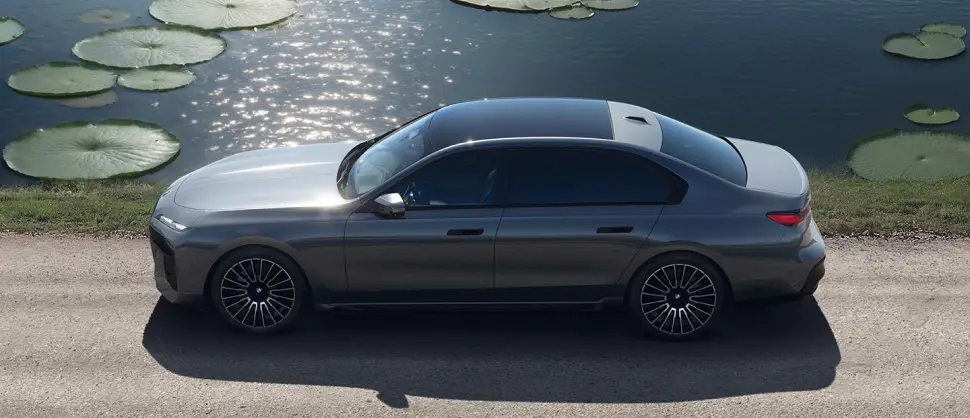

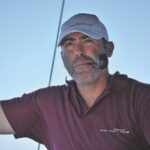
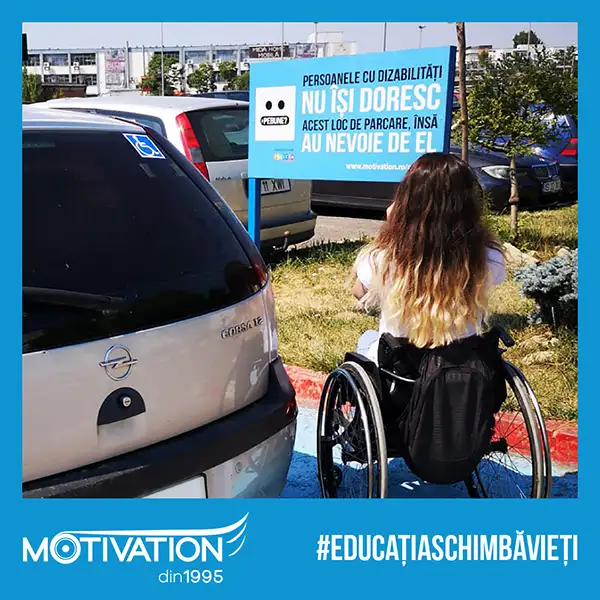
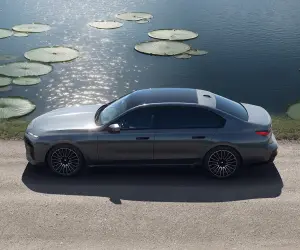

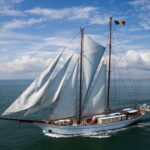
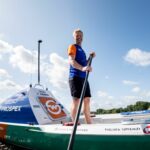
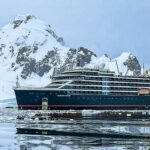

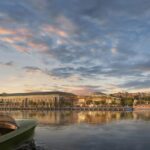
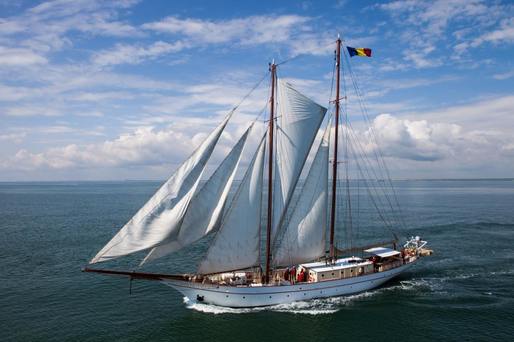
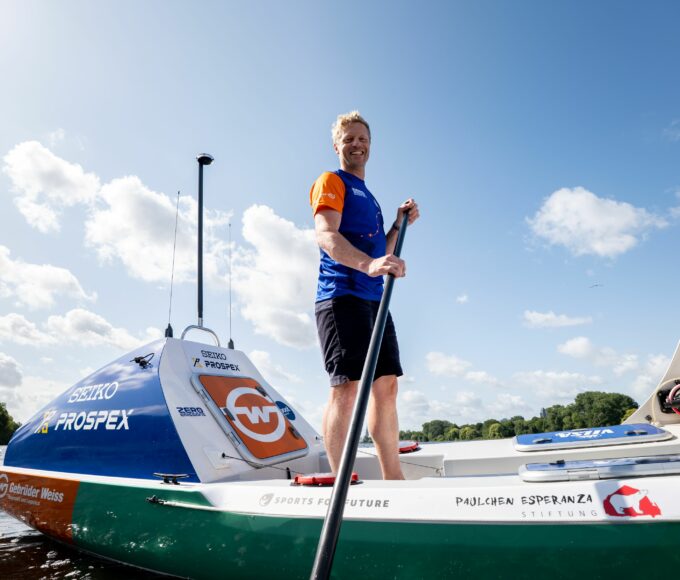
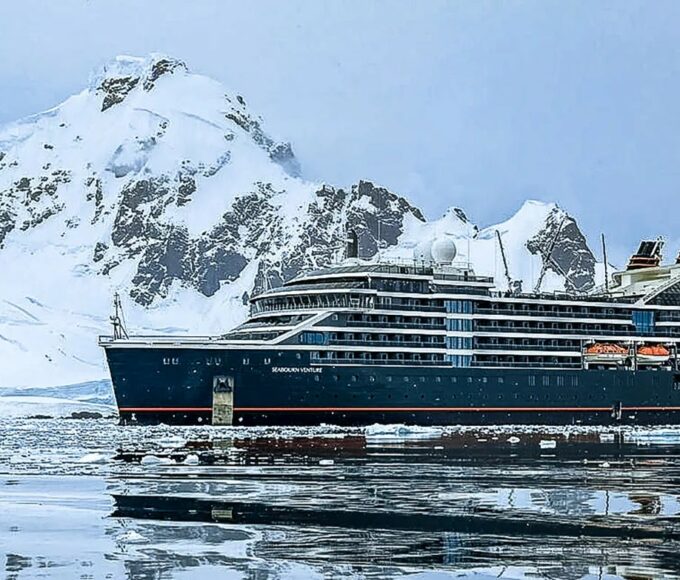

Comentați?